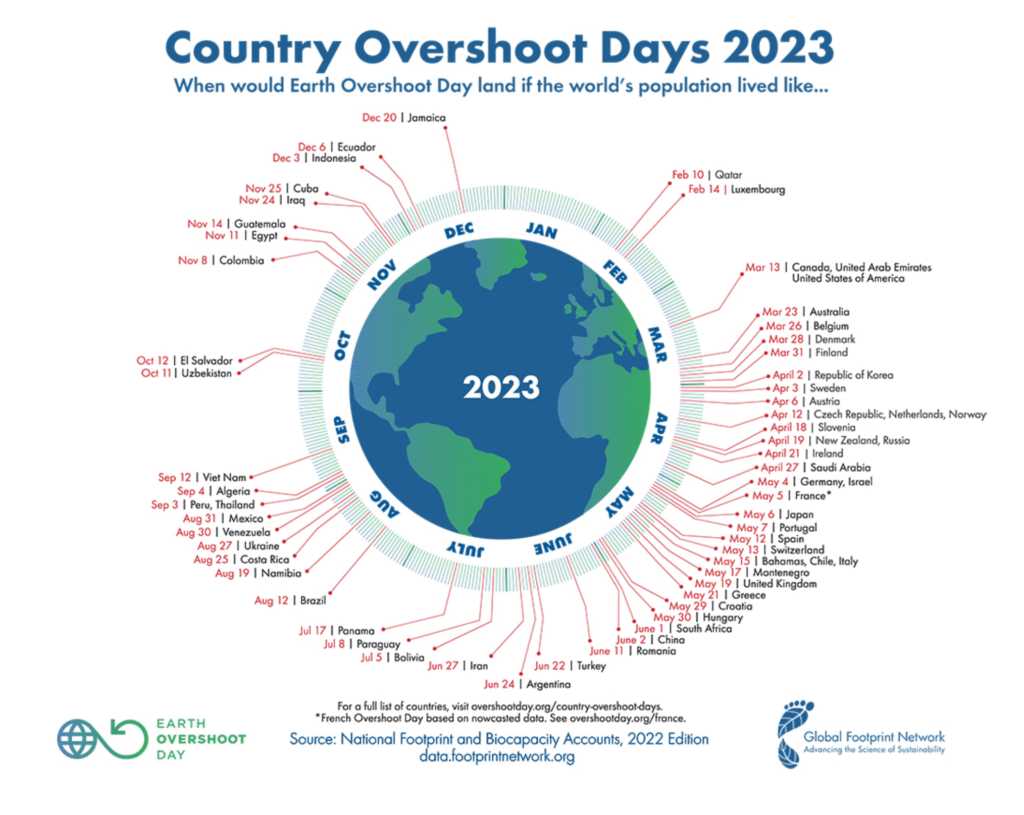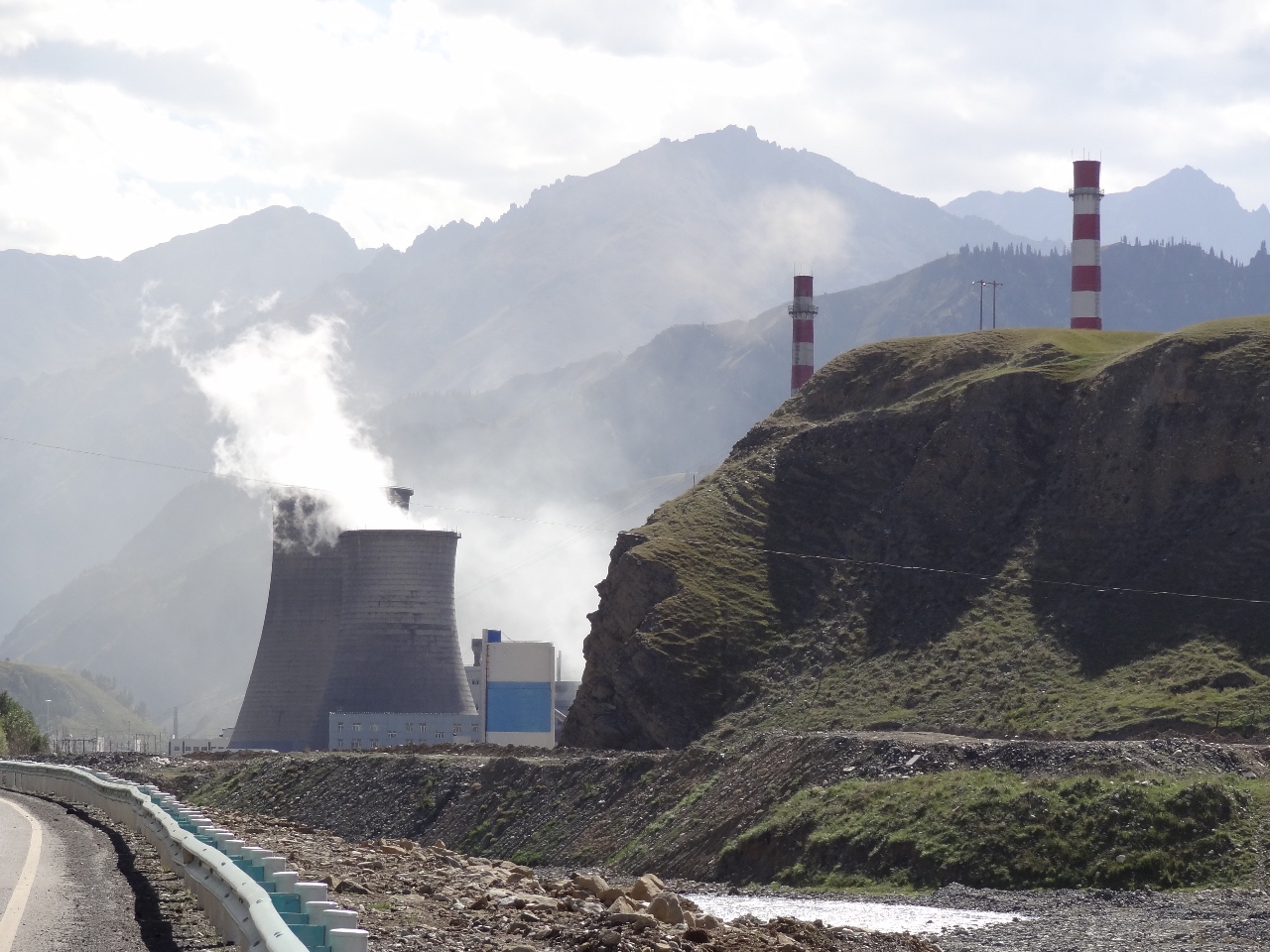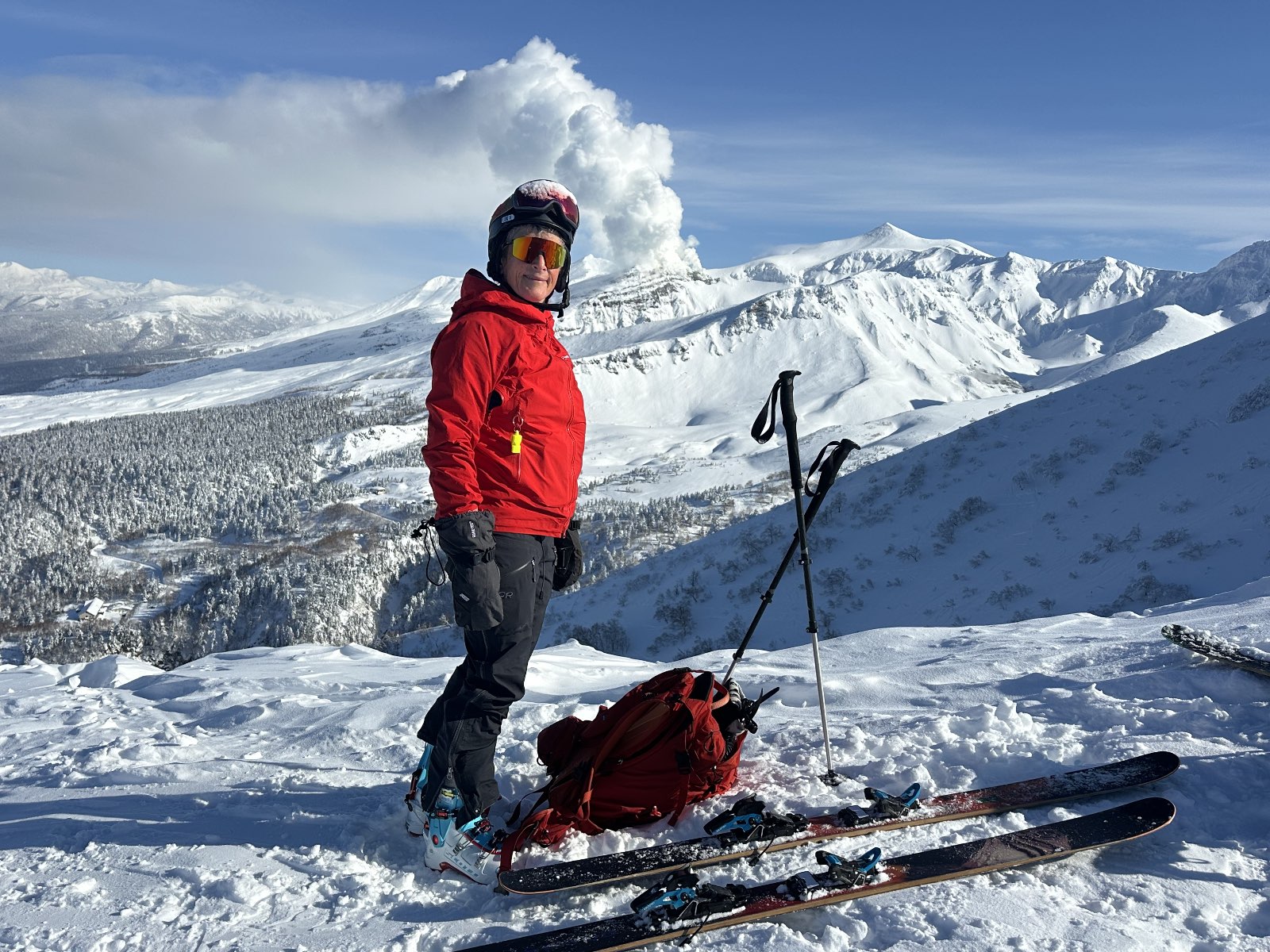Power station in Xinjiang, south of Urumchi. This is what people often imagine of when they think about environmental destruction, but earth overshoot day is about far more than power stations burning fossil fuel.
I have missed New Zealand’s Country Overshoot Day by a week – it was on April 19th 2023. I wrote about Earth Overshoot day early August last year. On 28th of July 2022 human consumption of ecological resources equalled the annual total of planetary ecological production for January-December 2022. In just over 6 months, humans had used up the planetary resources for the year. Another way of thinking about this is we require 1.75 planet earths to supply human biological needs each year long term. Of course, that’s an average, and it’s the rich people who are using the majority of the ecological production.

We can figure out each country’s relative level of consumption from looking at Country Overshoot Days – New Zealand comes in at 17th worst equal, together with Russia (see the picture below). If everyone in the world lived like New Zealanders or Russians, we need 3 planet earths to live within our ecological resources. Unfortunately we only have one.
I see lots of comments in social media asking why New Zealanders should improve their behaviour in regard to environmental matters? People say there aren’t many New Zealanders – the countries to really worry about are the ones with lots of people. The corollary of that would be, if you live in a highly populated country, it will be much easier for you to consume less. Really? Is it easier for each of the 170 million Bangladeshis to consume less, than for a New Zealander to consume less? If everyone lived like a Bangladeshi, there would be no Earth Overshoot Day, so it might quite hard for them to consume less than they already do. The same goes for India, with 1.4 billion people.

There’s no way around it – our nice New Zealand lifestyles are built on the back of huge environmental debt. And we can hardly say to the Bangladeshis and Indians that they aren’t allowed a nice lifestyle because there are too many of them, as opposed to our little country of five million. Why shouldn’t they want what we have? The only way to step away from Earth Overshoot Day is for any and all of us consuming the most to consume less, and set the example as well as reducing Planetary Overshoot.
What does this mean for future New Zealand? I was playing around with these ideas in my next novel, Threads of Connection, set in a not-too-distant future where the government is helping people make the hard decisions by restricting how much energy people have available to them. Energy restriction isn’t a novel concept – we’ve long had hot water cylinders that can be centrally controlled to manage electricity loads. At a much larger scale, Tradeable Energy Quotas are a solution to reducing greenhouse gas emissions and total energy usage well researched in the United Kingdom, although not yet implemented. If energy rationing becomes necessary (as it might have been in Europe if last winter had been cold), TEQs are a potential mechanism. With TEQs everyone (people and businesses) receives a weekly energy quota. The total available energy and emissions can be reduced at country scale with transparency and immediate effect.
What I was also thinking was what life would be like if energy quotas were used to restrict our activities. What would it be like if we need to use our energy quotas to heat our (sadly energy inefficient, but that’s another story) houses and cook our food, rather than to travel frequently nationally and internationally? I talked with my mother about this, because that was her life until I was born. When Mum was at University, a car was not the norm. Airline flights were a very special thing. People walked, cycled, caught buses and trains, took a six week ship voyage to reach the United Kingdom. People didn’t travel as much because they couldn’t afford to and the mechanisms didn’t exist. The funny thing is, their lives worked! People’s far flung friendships were maintained by letters, not visits. If people chose to live far from friends or relatives, that was in the knowledge they wouldn’t see them much, for the rest of their lives. Holidays were a break, not a time to travel somewhere else. Our constant movement at many scales isn’t a necessity … it’s a luxury. And the same goes for so much of our lifestyles that have resulted in Planetary Overshoot Days since 1971.
The trap is, how do you backtrack from a luxury? Because that luxury becomes your norm – it doesn’t feel like a luxury at all. A luxury is something … more! The only way I can see us backtracking is by having our luxury literally taken away from us. I love international travel and am struggling mightily with the concept of not being able to visit weird and wonderful places. But if I simply don’t have an energy quota that allows me to travel … I won’t, because I can’t. I need someone to do for me what I do for my research funding applicants – my applicants pay me to be mean to them (forcing them to deliver their research proposals), so they don’t have to be mean to themselves.
We need someone else to force us to be mean to us – cut back our resource and energy usage because we can’t do it ourselves. That someone else can only be government because it has to be a national effort. “Fat chance,” I hear you say. Why would politicians want to do something so unpopular and risk being voted out? The answer is, we need to vote politicians in on the explicit basis that they are going to help us counter our own worst consumptive instincts. We need to ask people like that to stand for political office. We must reinforce why we need those politicians, and why we like what they are doing, in conversations so many people call for the same brave politicians. How’s that for a concept?

Discover more from Jane Shearer
Subscribe to get the latest posts sent to your email.




